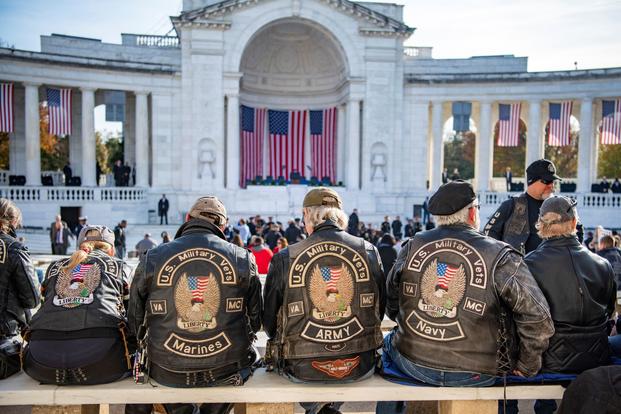A major change to a popular Department of Veterans Affairs program means the family caregivers of Vietnam, Korea and World War II veterans may qualify to get paid for their help and have access to caregiver training, mental health services and counseling and more.
The Program of Comprehensive Assistance for Family Caregivers underwent an expansion Oct. 1 affecting qualifying veterans who need around-the-clock care from a loved one.
Prior to Oct. 1, only caregivers of veterans who suffered a qualifying in-service injury on or after Sept. 11, 2001, were eligible for the program. An expansion of the program in a 2018 law made family caregivers of veterans who suffered a qualifying injury on or before May 5, 1975, eligible as well.
The program will undergo another expansion on Oct. 1, 2022, to include combat veterans who served between 1975 and Sept. 11, 2001.
Caregivers must provide in-home care for veterans who suffered a serious injury, have a VA disability rating of at least 70% and are enrolled in VA health care.
The veteran must need in-person personal care based on their injury, which left them either:
- Unable to perform an activity of daily living, such as dressing themselves; bathing or grooming themselves; adjusting a prosthetic or orthotic device on their own; going to the bathroom without assistance; feeding themselves or moving around their homes without assistance; or
- In need of supervision, protection or instruction to be able to safely function on a daily basis.
For a family member to be eligible for the program, the veteran must have service-related injuries that are severe and incapacitating. Examples include traumatic brain injury (TBI), major physical trauma, psychological injuries or similar severe injuries that require someone to help them function without danger of harm to themselves or others.
If a family member is helping such a veteran with their daily functioning, they may be eligible for several benefits including:
- A monthly cash stipend
- Travel expenses (including lodging and per diem while accompanying a veteran undergoing care)
- Access to health care insurance (if the caregiver is not already entitled to care or services under a health care plan)
- Mental health services and counseling
- Comprehensive VA Caregiver training provided by Easter Seals
- No less than 30 days of respite care each year. Respite care provides a temporary outside caregiver to help give a family member short periods of time off from providing round-the-clock assistance to the veteran
Check out more details of the VA Caregiver program.
If you think that you or someone you know may be eligible for the program, check out the VA's website for more information, including how to apply for benefits.
Stay on Top of Your Military Benefits
Not sure what your veteran health care benefits are? Keep up with all the changes and details. Subscribe to Military.com. and get all the latest updates straight to your inbox.











